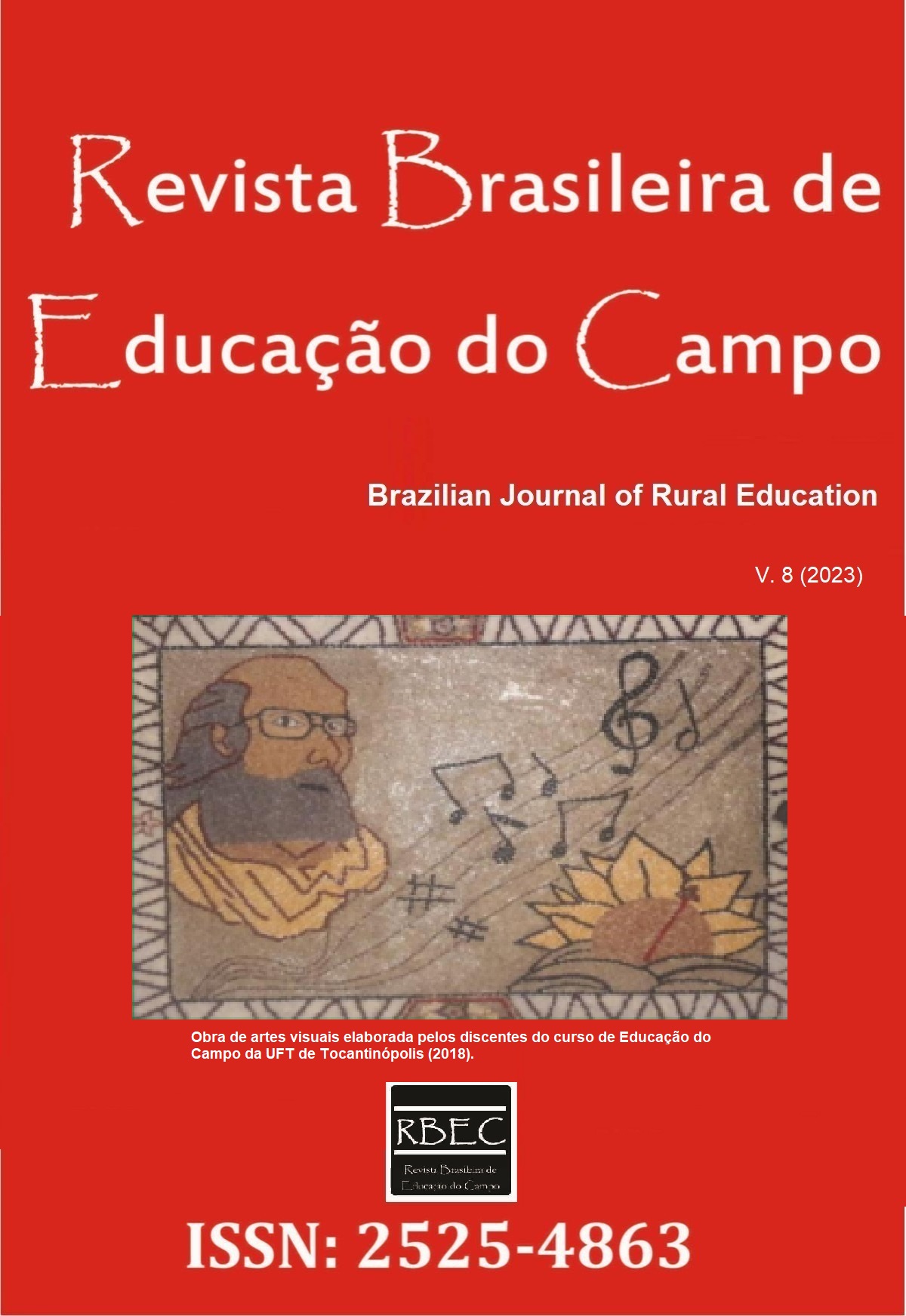Digital platforms, the materialization of the curriculum and the re-signification of meanings in the management of municipal education systems under the PRISME/TO program
DOI :
https://doi.org/10.20873/uft.rbec.e15374Résumé
ABSTRACT. This paper reports on the experience of monitoring the process of architecture and consolidation of the Avnei platform (Virtual Environment of an Educational and Interactive Nature) as a strategy for materializing the curriculum and dynamic monitoring in the management of municipal education systems proposed by the PRISME/TO Program. The production of data for the socialization of this investigation took place through the instruments of bibliographical review and documentary survey. The results point to the successful use of Digital Information and Communication Technologies (DICT) as a promising way to access, disseminate and repository information, as well as an educational space conducive to collective and interactive learning about teaching/education systems.
Téléchargements
Références
Brasil. (1988). Congresso Nacional. Constituição Federal de 1988. Brasília, DF. Recuperado de https://www.planalto.gov.br/ccivil_03/constituicao/constituicao.htm
Brasil. (2014). Plano Nacional de Educação 2014-2024 – Lei 13.005/2014. Brasília: MEC. Recuperado de http://www.planalto.gov.br/ccivil_03/_ato2011-2014/2014/lei/l13005.htm
Brasil. (1996). Congresso Nacional. Lei nº 9394/1996. Estabelece as Diretrizes e Bases da Educação Nacional. Brasília, DF. Recuperado de https://www.planalto.gov.br/ccivil_03/leis/l9394.htm
Brasil. (2021). Ministério da Educação. Fundo Nacional de Desenvolvimento da Educação. Plano de Ações Articuladas (PAR): orientações para elaboração do plano no município. Brasília: MEC.
Castells, M. (1999). A sociedade em rede - a era da informação: economia, sociedade e cultura. (R. Venâncio, Trad.). São Paulo: Paz e Terra.
Freire, P. (2001). A Educação na Cidade (5ª ed.). São Paulo: Cortez.
Lagares, R. et al. (2020a). Gestão da Educação: Validação das Ações Administrativas e Pedagógico-Curriculares e Finalização do Ano Letivo de 2020. Caderno Educação Municipal. Palmas: UFT.
Lagares, R. et al. (2020b). Gestão da Educação na Conjuntura da pandemia: com a palavra, cursistas e formadores. Caderno Educação Municipal. Palmas: UFT.
Lagares, R. et al. (2021). Gestão das Redes e dos Sistemas Educacionais: afirmação dos direitos à vida e à educação no retorno às atividades escolares em 2021. Palmas: UFT/PROEX.
Lima, T. C. S., & Mioto, R. C. T. (2007). Procedimentos metodológicos na construção do conhecimento científico: a pesquisa bibliográfica. Revista Katál, 10(esp.), 37-45.
Oliveira, J. F., Moraes, K. N., & Dourado, L. F. (s/d). Gestão escolar democrática: definições, princípios e mecanismos de implementação. Política e Gestão na Educação. Recuperado de: https://docplayer.com.br/2758832-Joao-ferreira-de-oliveira-ufg-karine-nunes-de-morais-ufg-luiz-fernandes-dourado-ufg.html
Oliveira, M. R. N. S. (2001). Do mito da tecnologia ao paradigma tecnológico; a mediação tecnológica nas práticas didático-pedagógicas. Revista Brasileira de Educação, 18. http://dx.doi.org/10.1590/s1413-24782001000300009
Paiva, V. M. O. (2010). Ambientes virtuais de aprendizagem: implicações epistemológicas. Educação em Revista, 26(03). https://doi.org/10.1590/S0102-46982010000300018
Prado, A. A., Almeida, R. J. G., & Saldanha, A. E. P. (2021). Sistemas de Gestão Acadêmica Integrados em Ambiente Virtual de Aprendizagem. ECCOM, 12(24). Recuperado de: http://publicacoes.fatea.br/index.php/ECC.
PRISME: Programa de Institucionalização e Gestão de Sistemas Municipais de Ensino/Educação (Prisme). PROJETO PEDAGÓGICO: formação, monitoramento, acompanhamento e avaliação, 2022.
Queiroz, M. A., & Gadelha, M. J. A. (2012). Formação de gestores escolares à distância: Avaliação do ensino e aprendizagem em ambiente virtual. Apresentação de Trabalho/Comunicação.
Shiroma, E. O., Campos, R. F., & Garcia, R. M. C. (2005). Decifrar textos para compreender a política: subsídios teórico-metodológicos para análise de documentos. Perspectiva, 23(2), 427-446.
Téléchargements
Publié-e
Comment citer
Numéro
Rubrique
Licence
© Katia Cristina Custódio Ferreira Brito, Ana Cleia Gomes da Silva, Eduardo José Cesari, Lêda lira Costa Barbosa 2023

Cette œuvre est sous licence Creative Commons Attribution 4.0 International.
Proposal for Copyright Notice Creative Commons
1. Policy Proposal to Open Access Journals
Authors who publish with this journal agree to the following terms:
A. Authors retain copyright and grant the journal right of first publication with the work simultaneously licensed under the Creative Commons Attribution License that allows sharing the work with recognition of its initial publication in this journal.
B. Authors are able to take on additional contracts separately, non-exclusive distribution of the version of the paper published in this journal (ex .: publish in institutional repository or as a book), with an acknowledgment of its initial publication in this journal.
C. Authors are permitted and encouraged to post their work online (eg .: in institutional repositories or on their website) at any point before or during the editorial process, as it can lead to productive exchanges, as well as increase the impact and the citation of published work (See the Effect of Open Access).














